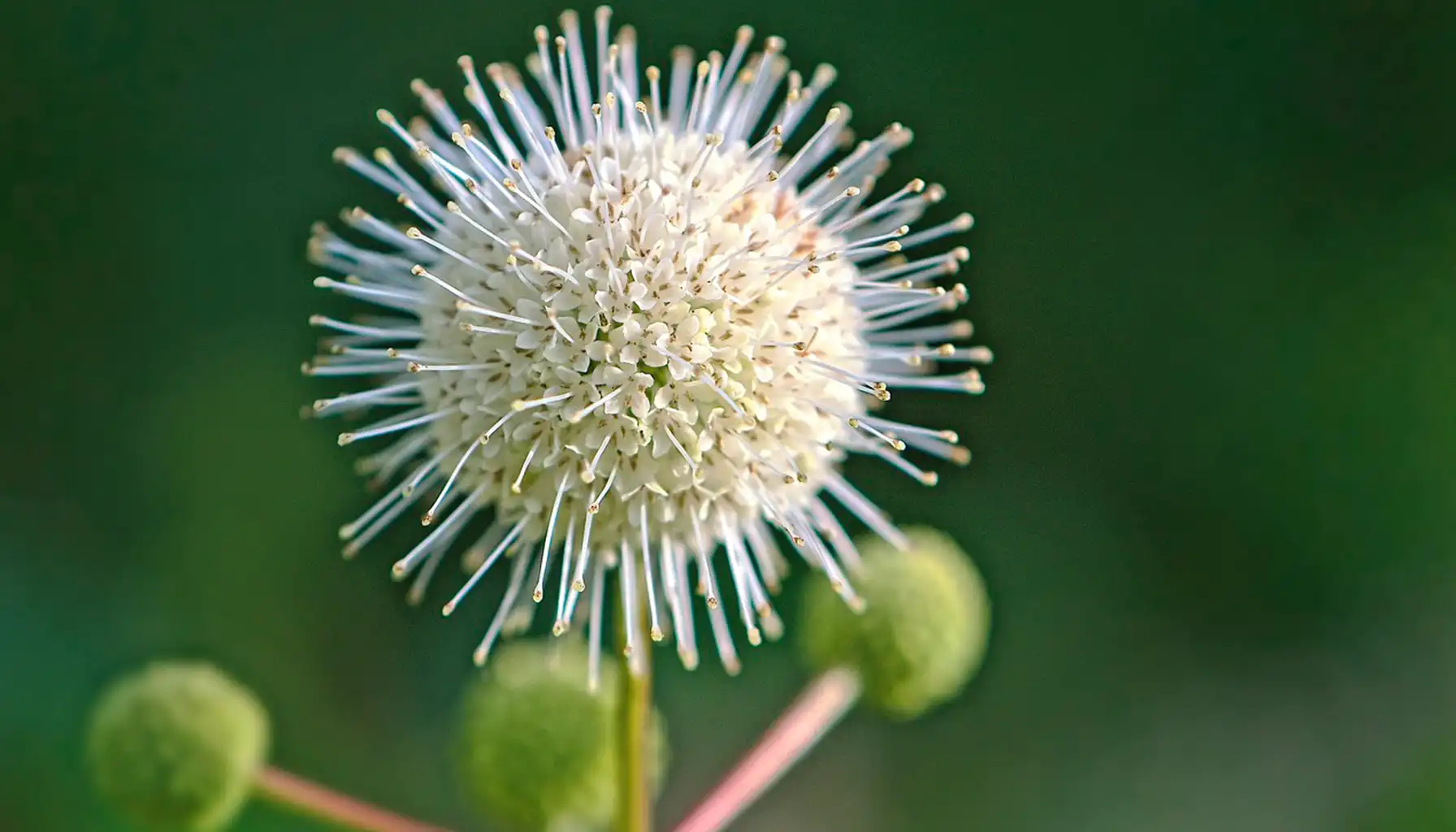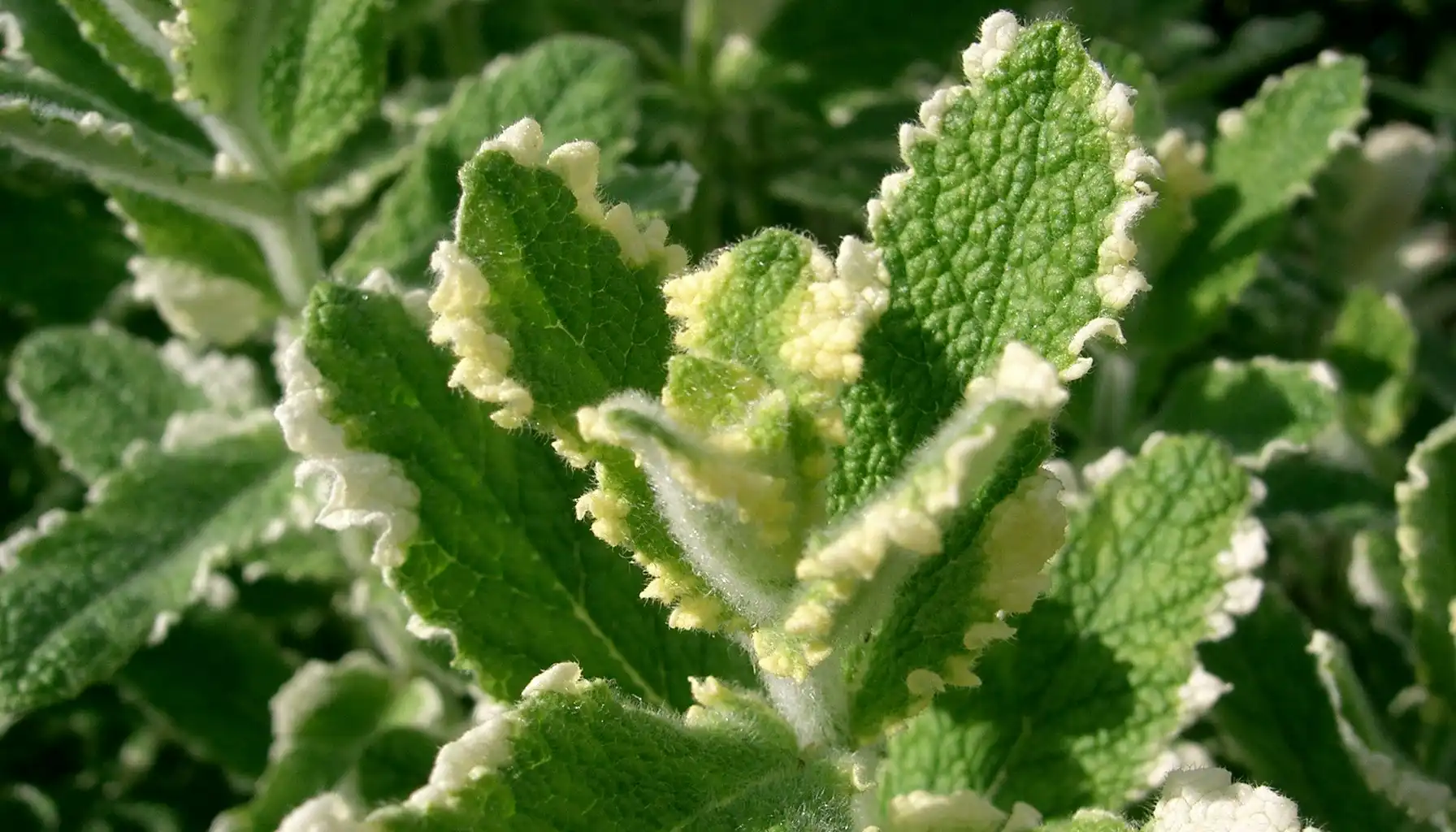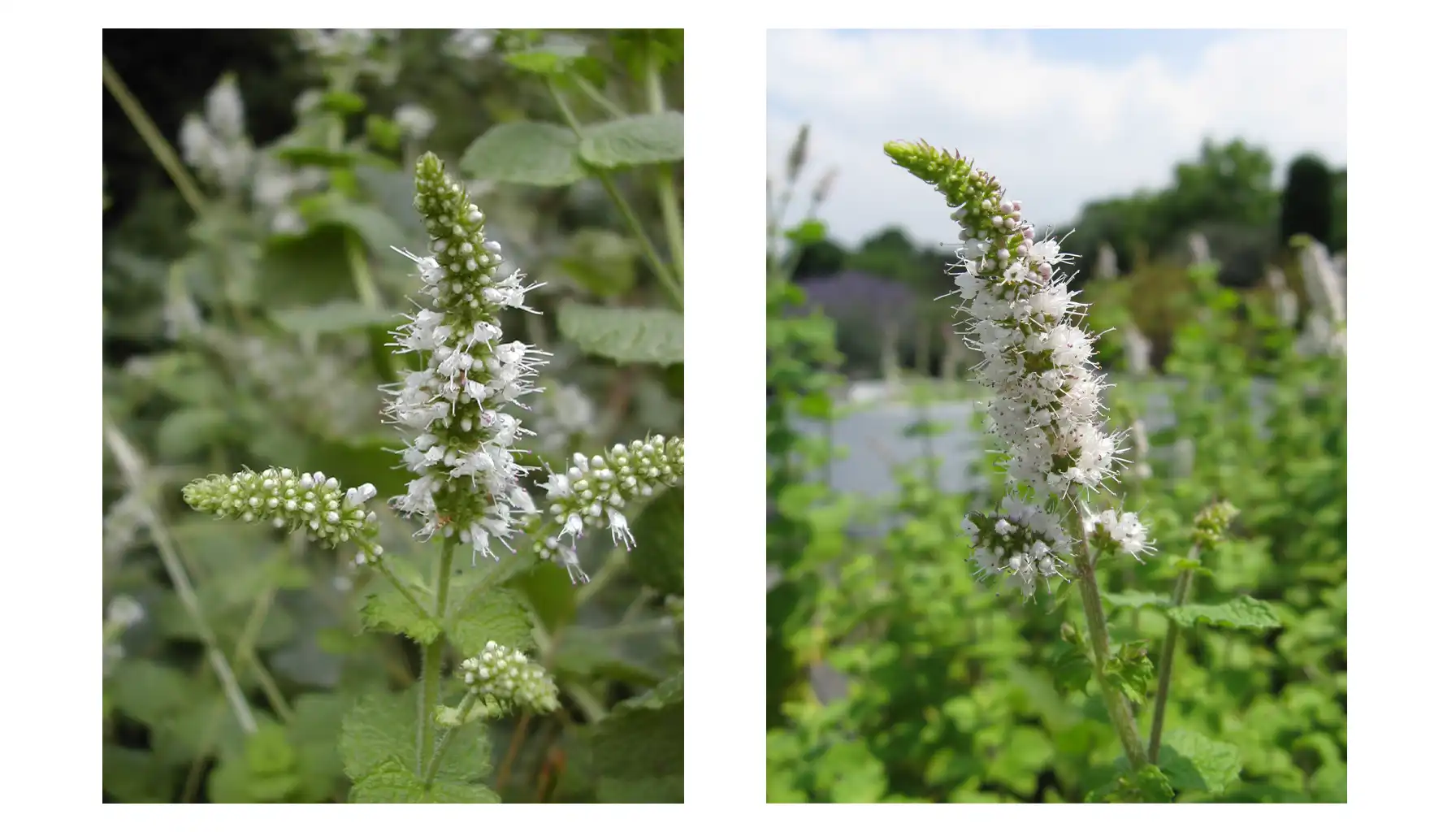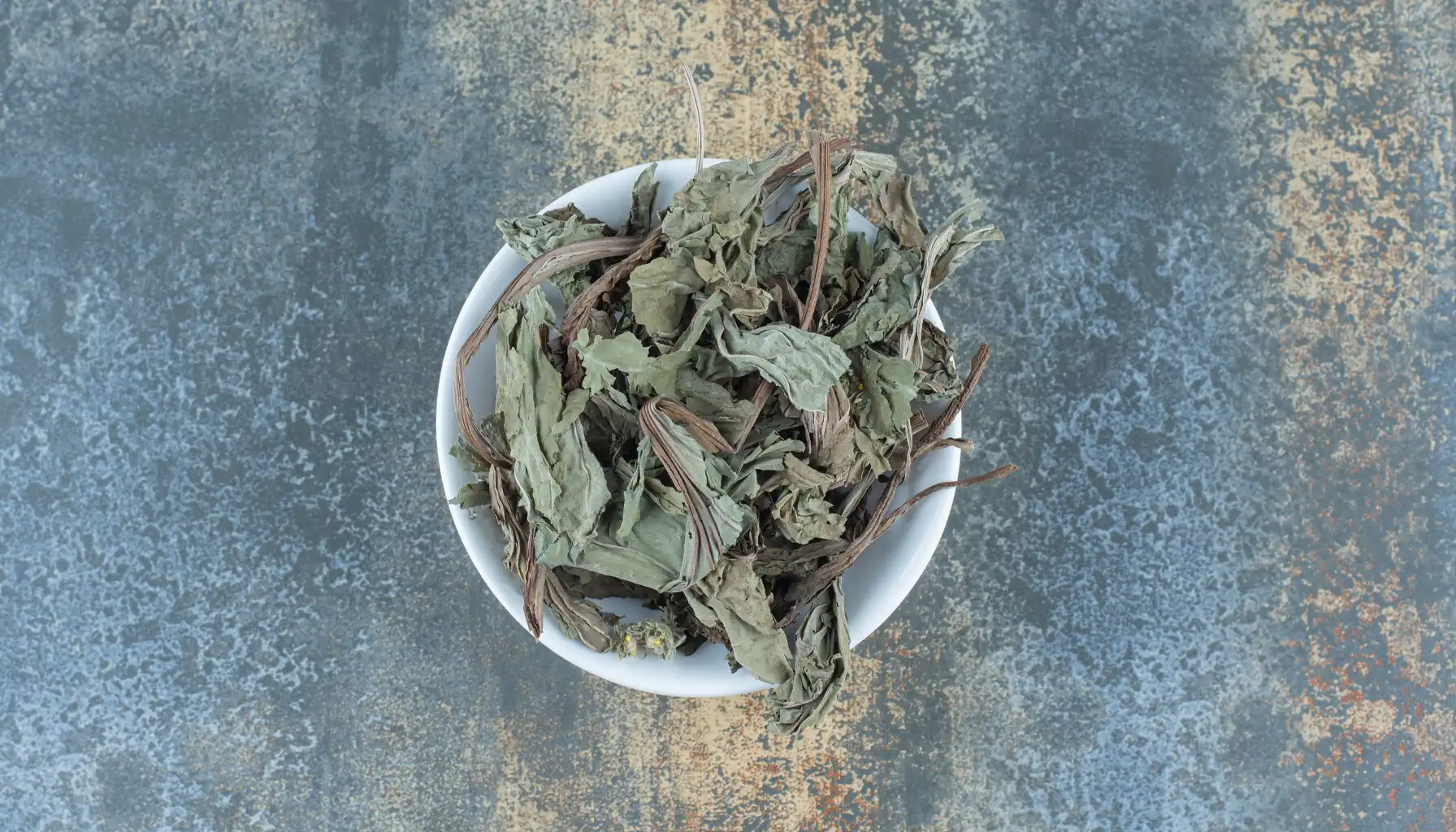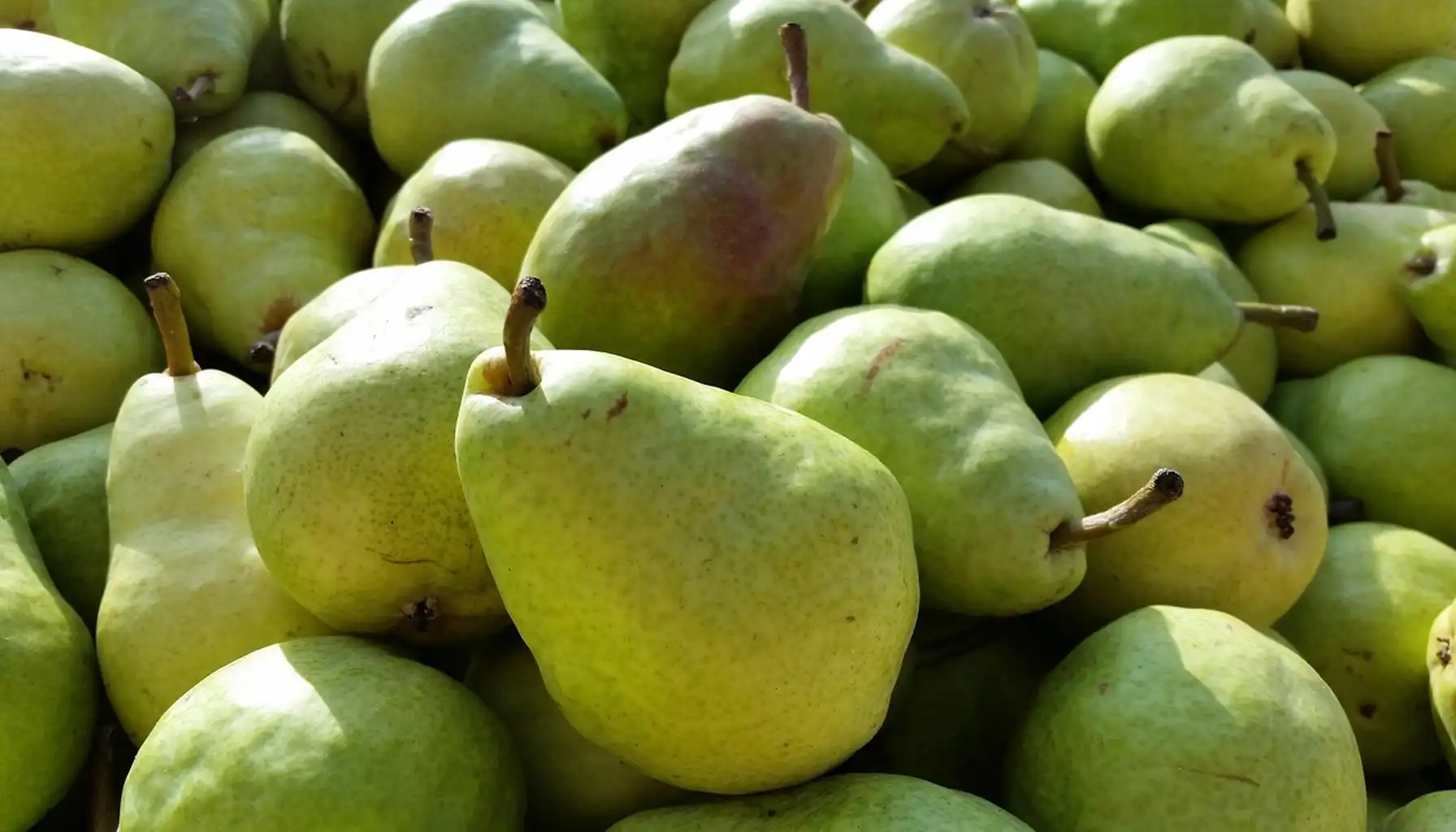Mentha suaveolens is a very useful mint variety, it has a special sweet and fruity smell, similar to the smell of ripe apples.
The main difference from regular peppermint is a stronger taste, a mild, and slightly vanilla like smell.
You've probably already tried it in various dishes, desserts, cocktails and smoothies, and if you want to use it yourself, grow it yourself, monitor the condition of the plant through the plant identification app and be proud of yourself.
The Plant’s Look and How it Grows
Apple mint grows fast, so you must control its roots when you grow it in the ground outside, because stolons can move quickly and take over a big part of your garden.
The leaves are large, round or oval, and very soft to the touch because they have hairs on them.
The plant usually grows to be to 60 cm tall, but if you give the best soil and sun, it can grow taller, and makes thick, wide areas with strong, square-shaped stems.
Apple Mint Flowers and Making New Plants
The blooming period usually starts in the middle of summer and continues until autumn.
The small flowers are located close to each other at the top of the stems, and they are usually pale white or light pink in color.
These flowers have a strong scent that attracts bees, bumblebees and butterflies to the garden.
This means that this plant is good for making honey, and it also helps other plants in your garden get seeds.
Cutting is the most reliable and common way to get new plants, and you can easily grow roots on healthy young stems in water or moist soil.
Root splitting is best done in spring or autumn, and you should carefully cut off that part of the underground roots that has a growing part and move it to a new location.
Growing from seeds is not carried out as often, because it is easy to find where to buy apple mint seeds, but new plants may not have as strong an apple smell as the parent plant, so it is better to use cuttings.
Growing and Looking After the Plant
Part of Care | What the Plant Needs |
Light | Bright sun or places with a little bit of shade |
Soil | Soil that is loose, has good things in it, and lets water go through fast |
Water | Water must be given often, mostly when the ground feels dry |
Control | Plant in very large pots or in barriers put into the ground |
Storing Apple Mint for Winter
Drying the Leaves
This is one of the easiest ways to preserve mint → you should cut off the stems before the small flowers appear, because it is at this time that the leaves have the strongest smell.
You should tie the stems in small groups and hang them in a dry place where the air circulates well and where there is no direct sunlight, because too much heat or light will destroy the smell and the leaves will turn brown.
When the leaves are completely dry and you can easily crush them with your fingers, you should put them in a glass jar and store them in a dark place.
Freezing the Leaves
It preserves its fresh taste better than when drying: you can cut the clean leaves into small pieces and mix them with a little water or oil, and then spread this mixture into ice cube molds so that you can easily take out one cube for meals or tea.
Stopping Small Problems: Pests and Diseases
Problem Name | What You See | How to Fix the Problem |
Red Spider Mites | Tiny insects under the leaves that make small yellow spots | Wash the plant with cold water or use a very weak soap spray that is safe for plants, so this will make them go away |
Powdery Mildew | A white powder that looks like dust on the leaves | Make sure there is good air movement around the plant and you must not water the leaves from above |
Bad Roots | The plant is not growing well and the roots are soft and dark | Check that the soil is not too wet, because sitting in water is bad for the roots and can hurt the whole plant |
Rust Disease | Small spots that look like orange or brown powder under the leaves | Cut off and throw away the parts that are sick, and you must make sure the air moves well around the plant |
Yellow Leaves | The leaves turn yellow or even brown all over the plant or get white spots when the sun is very strong | Put a little bit of food into the soil, and you must move the plant to a place with a little bit of shade if the sun is very strong |
What Is Apple Mint Good For?
Great for Cooking
Drinks: Fresh leaves are perfect for mint teas, you can drink it hot to calm yourself, or cold as a refreshing summer drink. And if you put it in lemonade, homemade fruit drinks, and cocktails like Mojito one — it gives a special apple taste.
Sweet Foods and Cakes: Apple mint goes well with apples, pears, and citrus fruits — put it in fruit salads, or ice cream.
Salads: Can you eat apple mint? Yes! Cut the mint apple leaves into small pieces and put them in fresh vegetable salads with cucumbers, tomatoes, and feta cheese.
Apple Mint Benefits for Your Body
Helping Digestion: Tea with apple mint is often used to improve the well-being of the stomach, eliminate bloating, and help relax soft muscles.
Making You Calm: It helps you calm down, cope with nervousness, and insomnia.
Helping Against Redness and Swelling: Special components of the plant, namely flavonoids, help a little with redness and swelling with minor colds.
Refreshing: If you find it difficult to maintain a water balance, especially in the summer, add apple mint to the water.
Apple Mint Plants for Sale
Local Garden Centers and Herb Nurseries
They sell plants that are used to the local weather, and they can also give you professional help on how to care for the plant and choose the right type.
But if you don't know who to turn to for advice, just use the AI Plant Finder — scan any plant through it and you will be guided on how to care.
Special Online Shops
Such stores for herbs and rare plants often have more types like Variegata one.
But it is important to check that the seller is trustworthy and that they pack the plant well for the sending.
Farmer’s Markets and Plant Fairs
Where to buy apple mint seeds? You can buy them directly from people who grow them in their own gardens and who often make new mint plants by taking cuttings.
Related AI Plant Finder Posts
